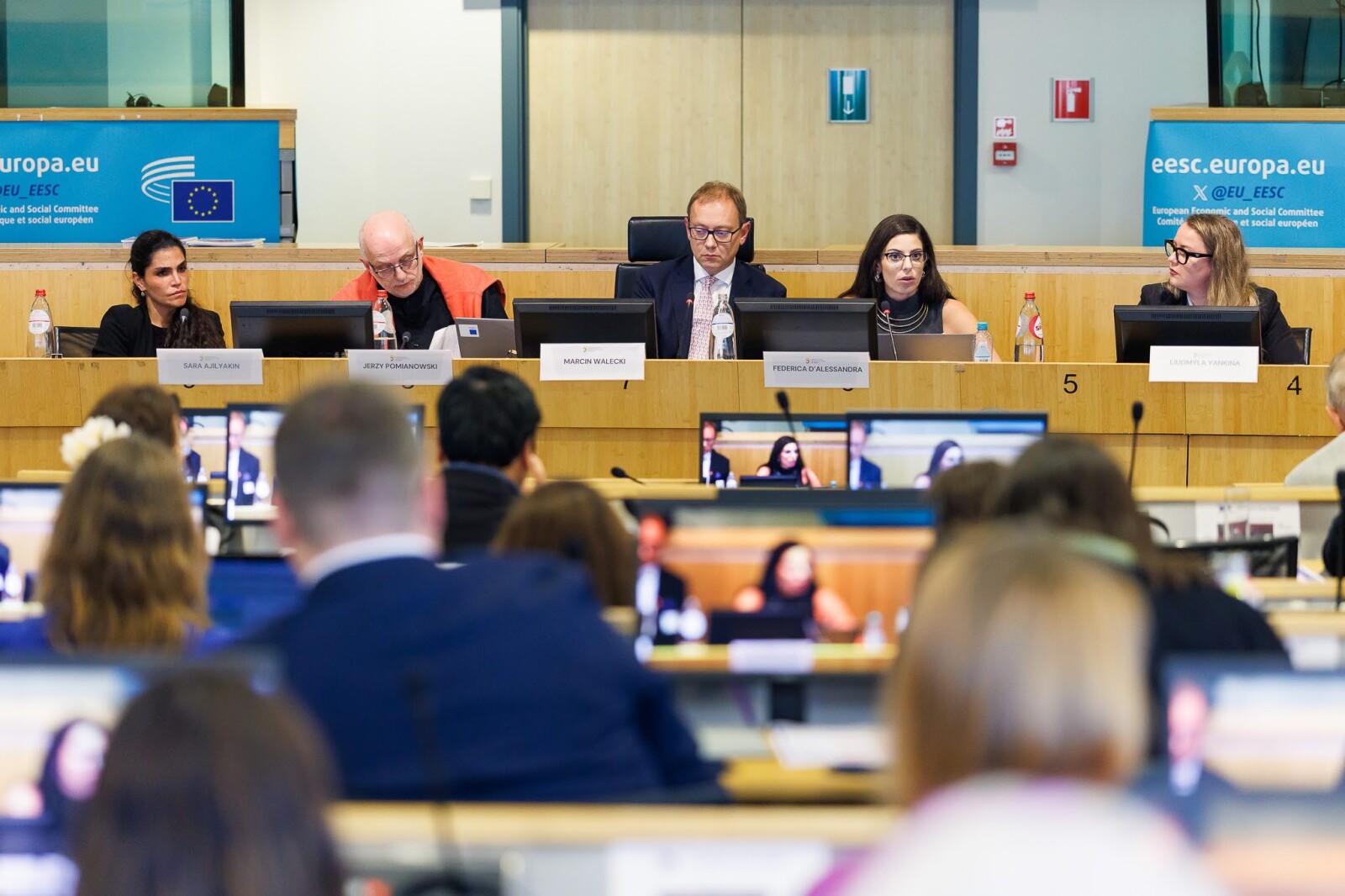
On 18-19 September 2025, the eleventh edition of International Democracy Day Brussels ‘Democracy and Inclusion in an Age of Insecurity’ was held in the Renaissance Hotel and the European Economic and Social Committee (EESC) in Brussels. During the two days of the conference, international activists, policy makers, politicians, and independent journalists gave their assessments on the current state of democracy, and offered insights from global, European, and national perspectives.
At Day One of conference, in a video address, Commissioner for the Mediterranean, Dubravka Šuica, called for innovation in participation, and referred to the new European Centre for Resilience, recently announced by EU Commissioner President Ursula von der Leyen. The opening panel discussion highlighted that lasting democratic resilience relies on meaningful inclusion, requiring sustained investment in civic engagement and equality.
Other panel discussions covered barriers to youth participation, party reform strategies from African women and youth leaders, and global democratic trends. The International IDEA Global State of Democracy report showed declines in rights and representation, with some anti-corruption gains. A panel discussion on the EU–CELAC Summit emphasised civil society engagement and tackling disinformation. The day ended with EU Special Representative (EUSR) for human rights, Kajsa Ollongren, urging action against a growing “democratic recession”.
Day Two of the conference began with a video address by EESC President Oliver Röpke, who stressed that inclusion and civic space are core to democracy. Röpke warned that war threatens democratic values and reaffirmed the EESC’s global role. In another video address, Commissioner for Enlargement, Marta Kos, described EU enlargement as a transformational process, confirming continued support for Ukraine, Moldova, and other candidate countries. Richard Youngs of Carnegie Europe highlighted a shift toward grassroots civic movements, calling for more adaptive and inclusive democracy support.
In the first panel discussion of the day, speakers called for a move away from top-down aid toward co-created, locally driven initiatives, backed by flexible funding and links to climate and anti-corruption agendas. In lightning talks, Raša Nedeljkov of the Center for Research, Transparency and Accountability stressed that democracy must be actively defended, citing Serbia’s protests, while Jorge Jraissati of the Economic Inclusion Group warned of financial exclusion for CSOs and proposed a “right to banking”. In a final video address, Commissioner for Defence and Space, Andrius Kubilius, reaffirmed EU support for Ukraine and urged vigilance against authoritarian threats.
In the final panel session of the conference, “Democracy Matters: Values as Strategy, Security as Outcome”, Jerzy Pomianowski (EED) emphasised democracy’s role in conflict prevention and proposed allocating even a small portion of defence budgets to democracy-building. Federica D'Alessandra (Carnegie Endowment for International Peace) underlined the dangers of illiberal international order facilitated by authoritarian regimes. Sara Ajilyakin (Al Jumhuriya Collective, Syria) cautioned against international disengagement in fragile contexts like Syria and stressed the importance of preserving independent civic space. Liudmyla Yankina (Civis Fortis, Ukraine) highlighted the risks faced by Ukrainian activists under Russian aggression and urged sustained global support to ensure civil society’s survival, innovation, and role in Ukraine’s democratic future.
Gary Klaukka (ENoP) concluded the conference with a clear message: democracy is not just a shared value—it is a strategic necessity. Flexible funding, inclusive partnerships, and consistent EU leadership are key to ensuring democracy delivers in times of crisis.
International Democracy Day Brussels
The International Democracy Day Brussels Conference (IDD Brussels) is an annual event that is co-organised by the European Endowment for Democracy (EED), the European Partnership for Democracy (EPD), the European Network of Political Foundations (ENoP), International IDEA, and Carnegie Europe. The event brings together leading voices in democracy support, governance, and civic engagement. Since its inception, the conference has served as a platform to foster dialogue, share expertise, and build partnerships among policymakers, civil society representatives, researchers, and international organisations.